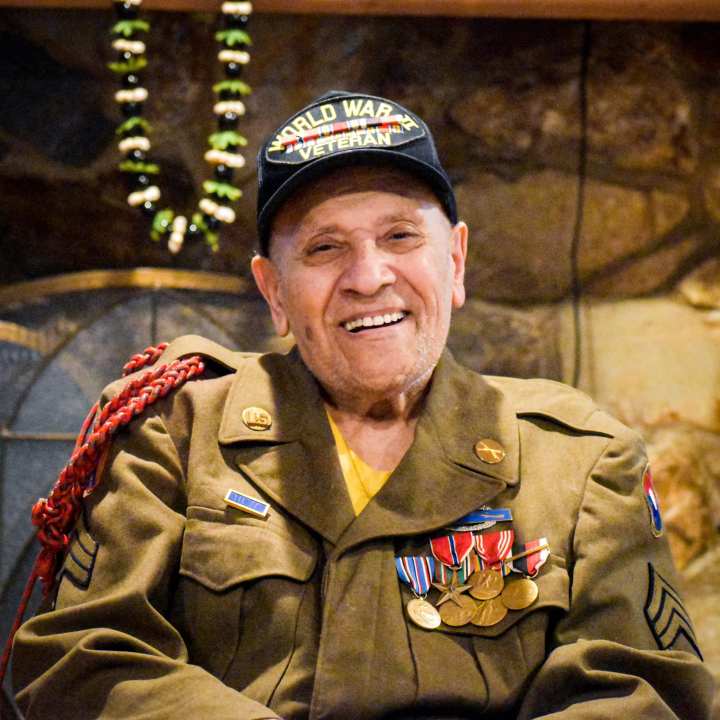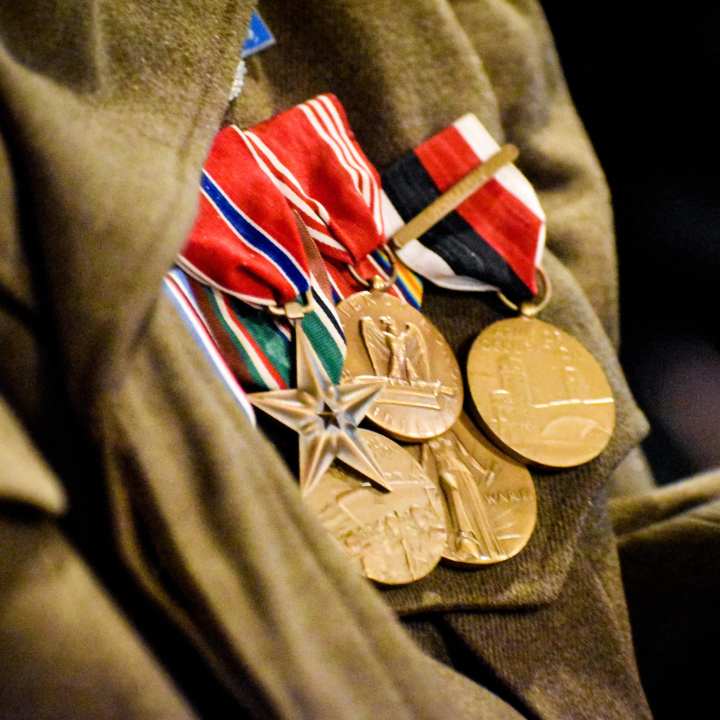NORFOLK, Va. (WAVY) — Thursday marks the 80th anniversary of the D-Day invasion, and the events in the months that followed would ultimately lead to the end of World War II.
According to the U.S. Department of Veterans Affairs, about 119,000 of the 16.5 million Americans who served are still alive, and some are right here in our backyard.

In a quiet Norfolk neighborhood, there’s a big personality in 99-year-old Andrew Valero. His back room is full of mosaic tile projects that, over the last few years, have kept his mind sharp.
“These are ones I’ve made for veterans or for friends,” Valero said. “They’re made of wood, but I put mosaics on them.”
Nearly 80 years ago, when he was just a teenager, it was his family that kept him sharp. Growing up in New York City, Valero never completed high school, as he claims he was “always in the backyards, playing hooky.” But when his mother got word, she went to the draft board.
“Lucky me,” Valero said with a big smile.
In April 1943, he was on his way to join the Army.
“I remember the train ride from Grand Central Station,” Valero said. “The windows were tinted and I remember seeing my face looking back. You can see a grim, sad face.”
Valero would end up being part of an Anti-Aircraft Artillery unit, but by late 1944, allies had superior power over the skies of Europe, so when it came time to ship out overseas, he and crew were headed for the front lines instead.
“You’re going overseas but you’re going as replacements, and most of you are going into the infantry,” Valero said as he explained his thoughts in that moment. “Well, that’s a death sentence. A little guy like me? Against those big Germans with bayonets? I’m sure I’ll be in the back somewhere. Nope — infantry.”
Ten days after deploying in December 1944 with the 9th Infantry, Valero found himself in the Battle of the Bulge.
This was the last major German counteroffensive on the western front, and the bloodiest battle for the U.S. in World War II. The Army lost about 19,000 men.
“Boy, when they broke through, we couldn’t believe it,” Valero said. “It was a blitzkrieg. I weighed 135 pounds when I joined my outfit and would lose 20 pounds in the Bulge. My rifle almost weighed as much as I did.”

Valero made it out with a promotion to sergeant, two Bronze Stars and a case of trench foot. After getting a fellow soldier to the aid station, he was able to get assistance on his foot from a medic who sent him to recover in the hospital.
After a short stay and a healthy recovery, Valero had enough points in the Army to stay and finish his time in Europe, as opposed to being shipped out to the Pacific.
He was then transferred to the 71st Infantry, where post-war occupation included security at the liberated Dachau concentration camp, which was holding German soldiers awaiting trial.
“You wanna see hardened combat troops cry? And I was one of them,” Valero said. “It just broke your heart. It was horror, horror.”
After discharging from the Army in 1946, these moments from war stuck in his mind as he was back stateside.
And once again, it was his family keeping him sharp. On the homemade mosaic table up front was Valero’s wife, Lola.
“One day she and my mother took the pills and flushed them down the toilet,” he said. “She came up to me with tears, and she said, ‘from now on I’m your nurse.'”
They would go on to celebrate 59 years of marriage, and in 1999 after 31 years in the fire department of New York, Andy and Lola made Norfolk their home.
Valero attributes a lot of his success in life to his luck, his faith and his family.

























































